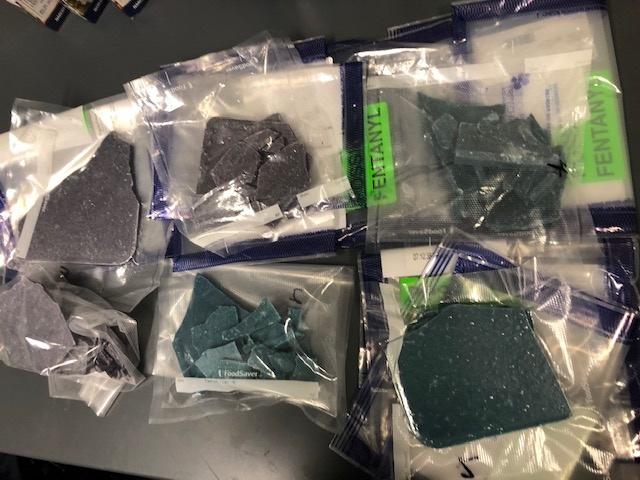As a police officer in Vancouver — a city with Canada’s poorest neighborhood — Bill Spearn has seen a lot of tragedy and despair fuelled by drug abuse and addiction over a long law enforcement career.

But nothing compares to the carnage of the last three months in British Columbia, where 526 people have died from illicit drug overdoses.
“I’ve never seen anything, in my almost 25 years of service with the Vancouver police, that can compare to this,” said Spearn, an inspector with the department’s organized crime division.
The shocking B.C. death rate is a glaring example of the latest public health crisis in Canada: an epidemic of fatal drug overdoses that’s even worse than the COVID-19 pandemic.

“The number of people dying in B.C. due to an unsafe drug supply continues to surpass deaths due to homicides, motor vehicle accidents, suicides and COVID-19 combined,” Chief Coroner Lisa Lapointe said this week.
It’s a shocking situation for a veteran cop like Spearn, who thought he had seen it all.
Vancouver is home to the Downtown Eastside, Canada’s poorest neighbourhood, where the misery of drug addiction is a daily fact of life Spearn saw up close.
But that was before deadly fentanyl began showing up. The powerful synthetic opioid, laced into the city’s supply of illegal street narcotics, can easily kill users who ingest even a grain or two of the drug.

Get breaking National news
The overdose crisis was declared a public health emergency in B.C. several years ago, and authorities were making progress on the death rate throughout 2019 and into 2020.
But then the COVID-19 pandemic struck, unleashing a new wave of death among people using drugs alone.
The spasm of fatal overdoses happened despite pandemic-driven border restrictions, that some though might stem the inflow of fentanyl from source countries like China.
“A lot of people assumed that with borders closed, nothing would be flowing into the country,” Spearn told me.
“But the commercial traffic still flows.”
Fentanyl is still entering Canada across land borders, through sea ports and especially through the mail, he said.
“You don’t have to meet anybody in a dark alley at midnight,” he said.
“You can order this stuff online and it will come to a post-office box.”

And now there is evidence of domestic production of fentanyl, too, all driven by the lure of easy money and growing demand.
“Traffickers are making a tonne of money,” he said. “Fentanyl is cheap to produce and the money you make selling it is much more lucrative than other controlled substances.”
Police continue to pursue high-level fentanyl importers, producers and traffickers with some success.
But Spearn admits that for every trafficker charged and jailed, another quickly fills the void.
That’s why he is among many police leaders in Canada now calling for a “safe supply” of pharmaceutical-grade drugs for addicts, to replace the deadly street supply.
“That was a tough thing for me,” he said.
“It took years for that light bulb to go off in my head, that it makes no sense to tell people with a health issue — addiction — to go to the streets for drugs we know are poisoned.”
Meanwhile, as demands grow for harm-reduction measures like legalized drugs, there is another rising demand for treatment options to get addicts off drugs completely.
“We have to start taking some action toward a recovery-oriented system,” said Dr. Carson McPherson of Cedars at Cobble Hill, a B.C. addiction-treatment centre.
“We’re really playing into what’s ultimately a sick-care system and not a health-care system,” he said. “It’s tantamount to hospitals over-investing in ambulances.”
But here’s the problem: intensive addiction treatment and recovery programs — especially residential facilities with round-the-clock care — are very expensive.
And with a shortage of government funding in place, some treatment centres are reporting empty beds at the same time addicts are dying in record numbers.

For governments across Canada, the country’s “other health-care crisis” presents multiple challenges: finding the political courage to legalize a “safe” drug supply, and finding the money to pay for costly treatment programs to get addicts off drugs once and for all.
mike@cknw.com
Twitter: @MikeSmythNews












Comments